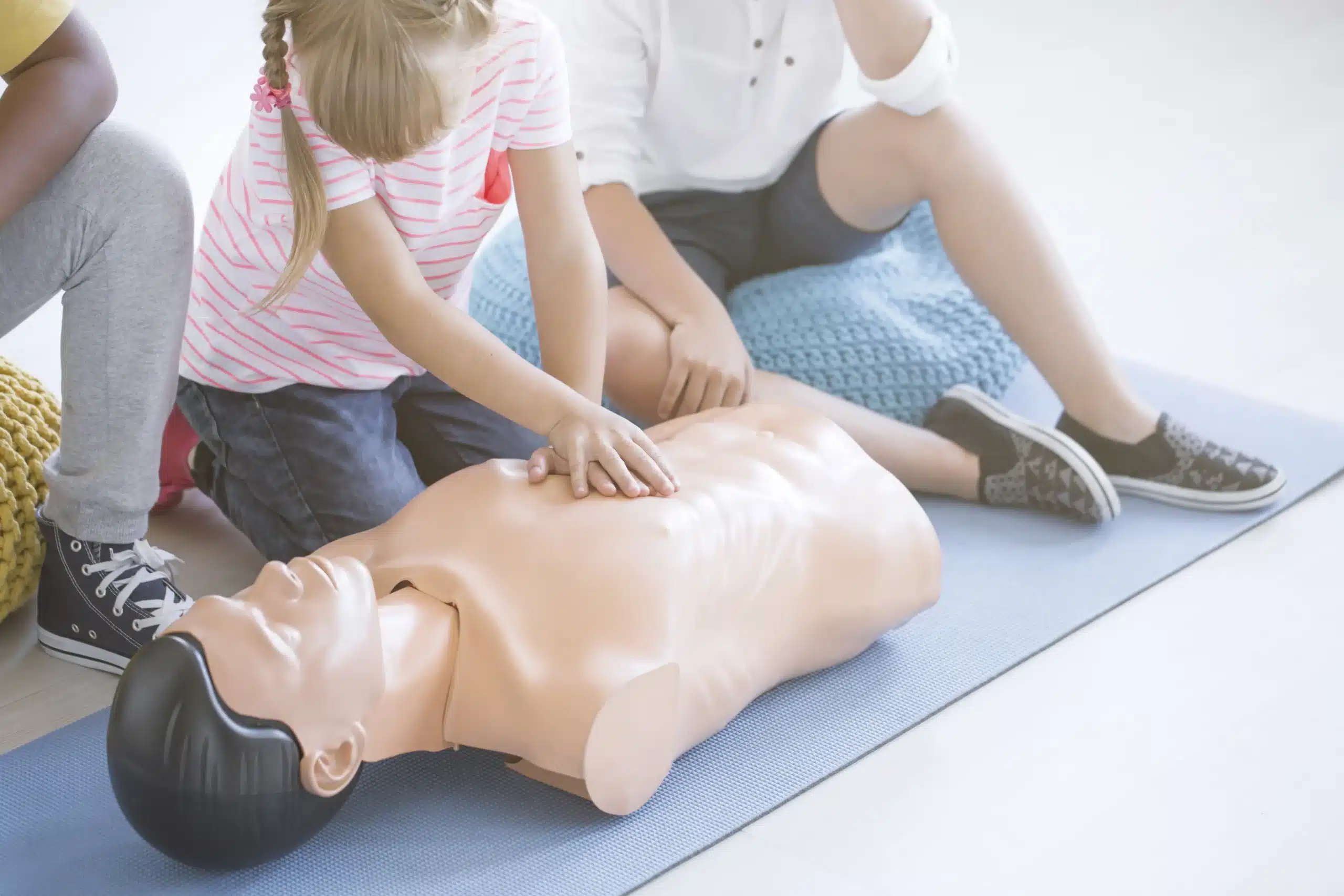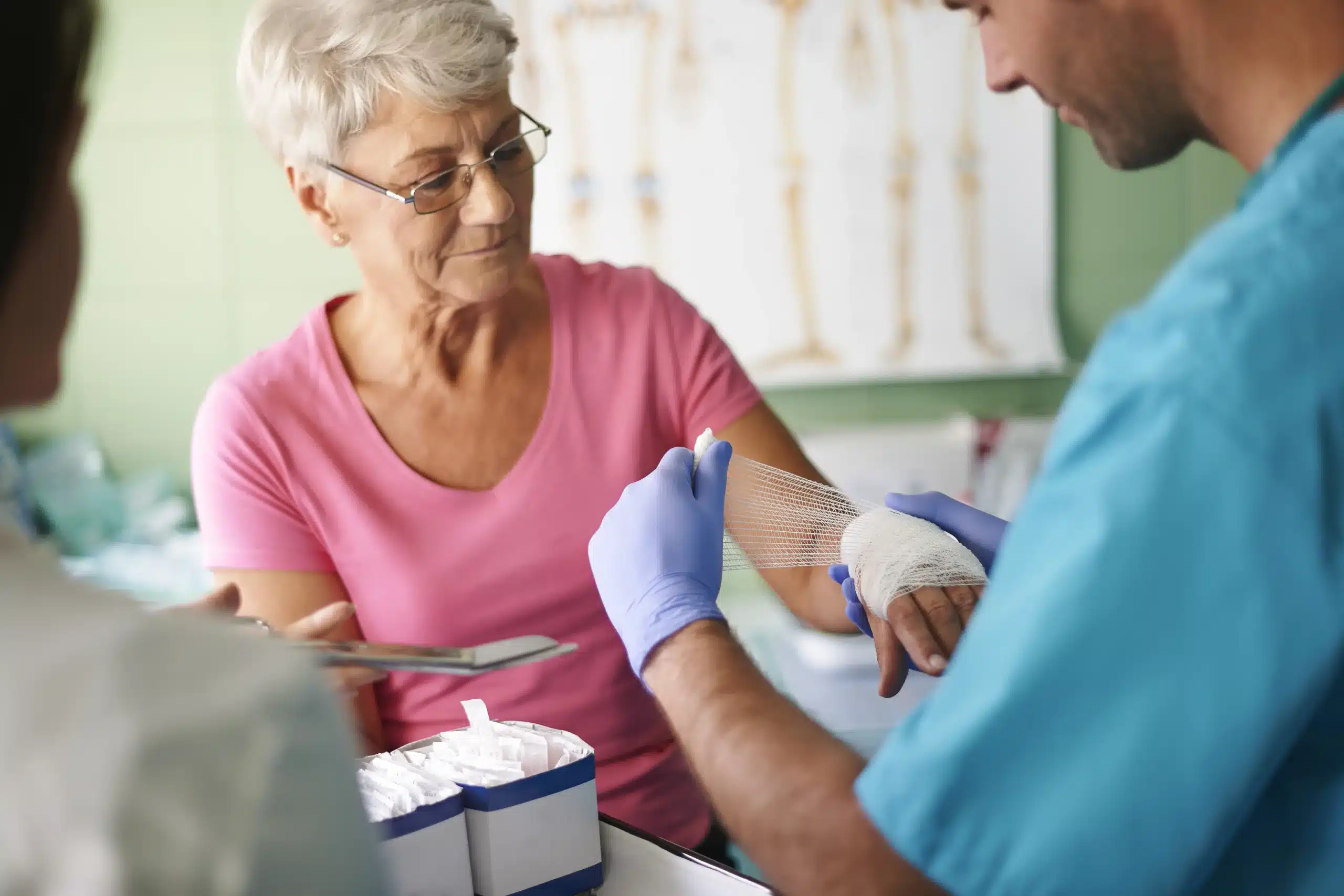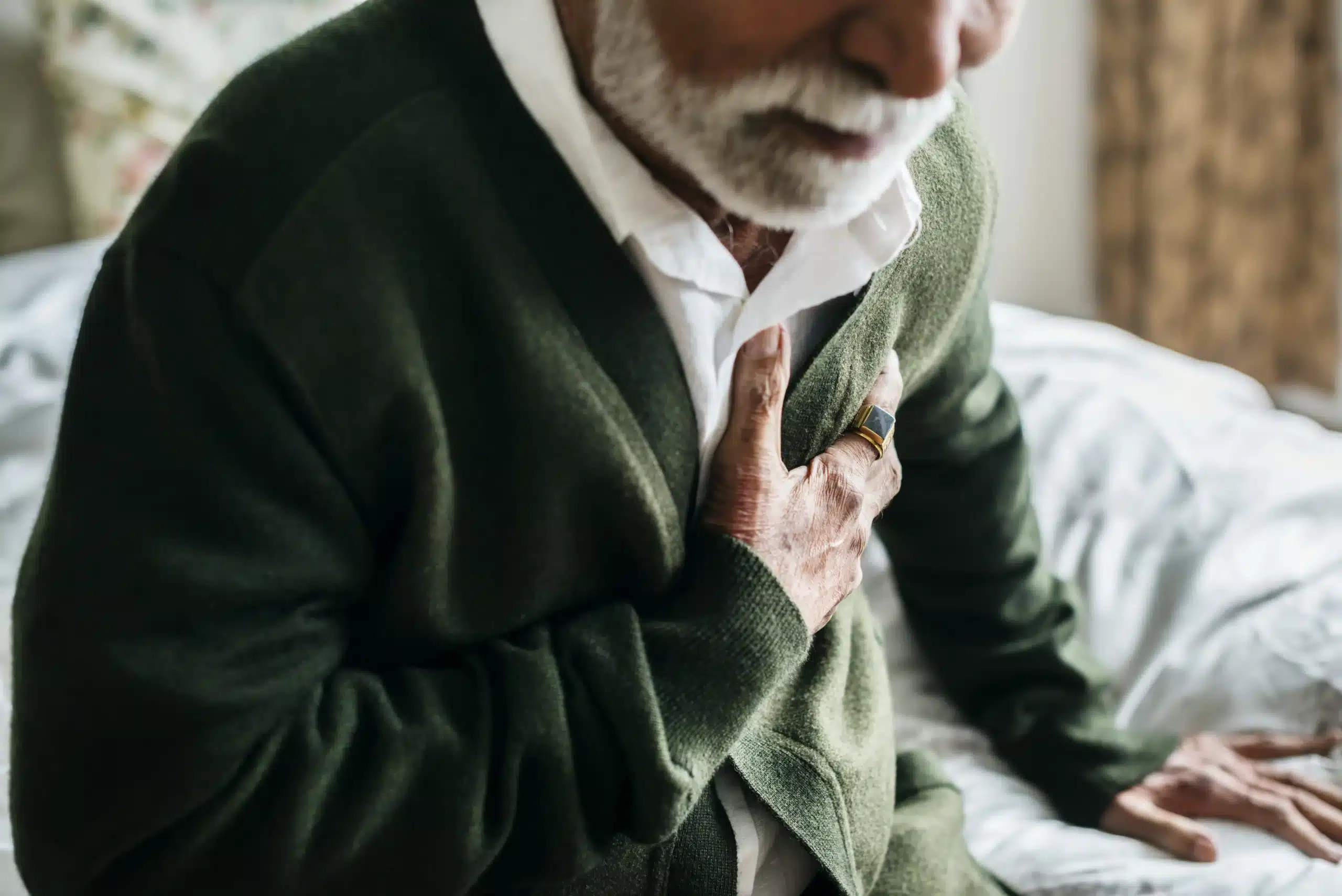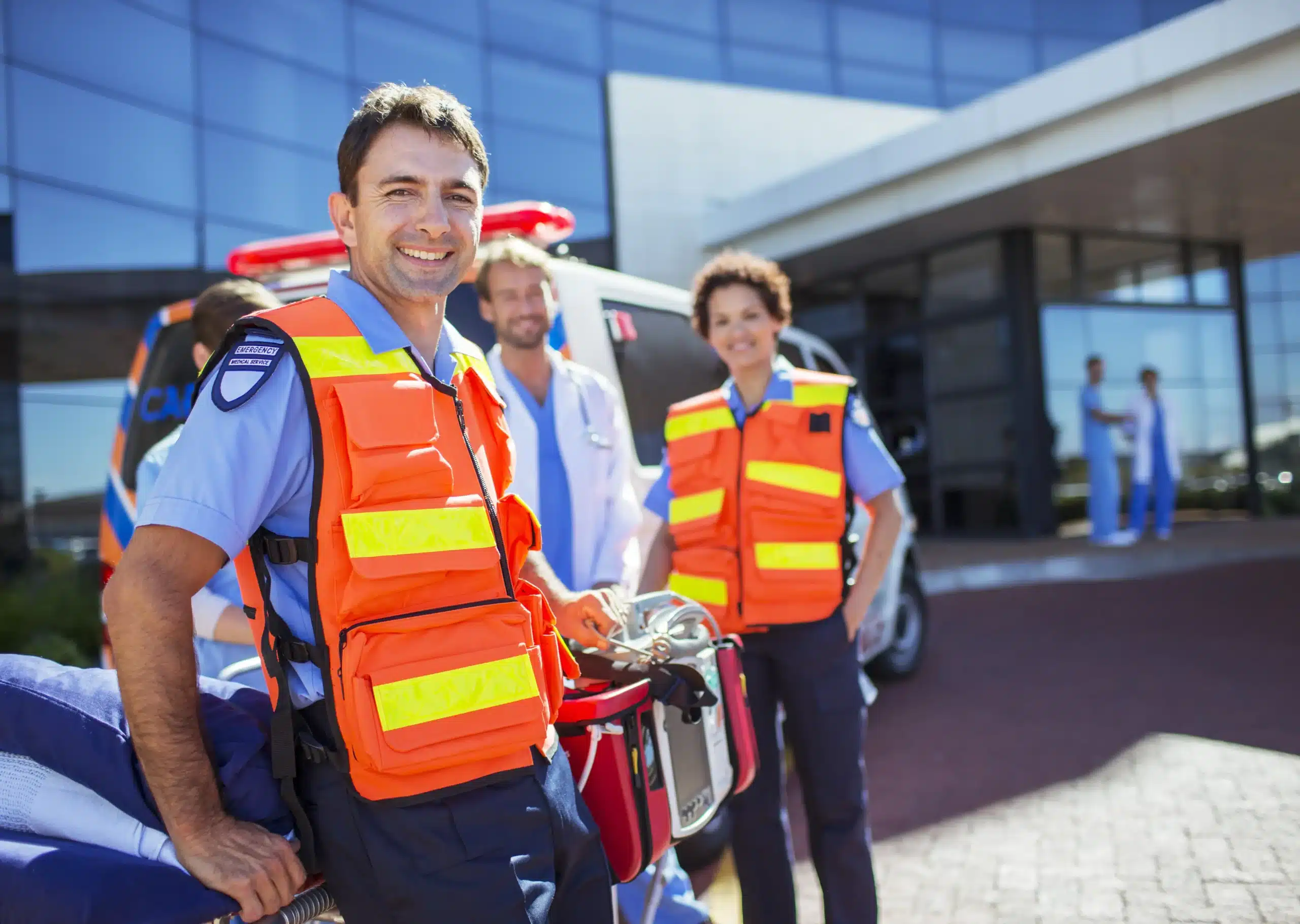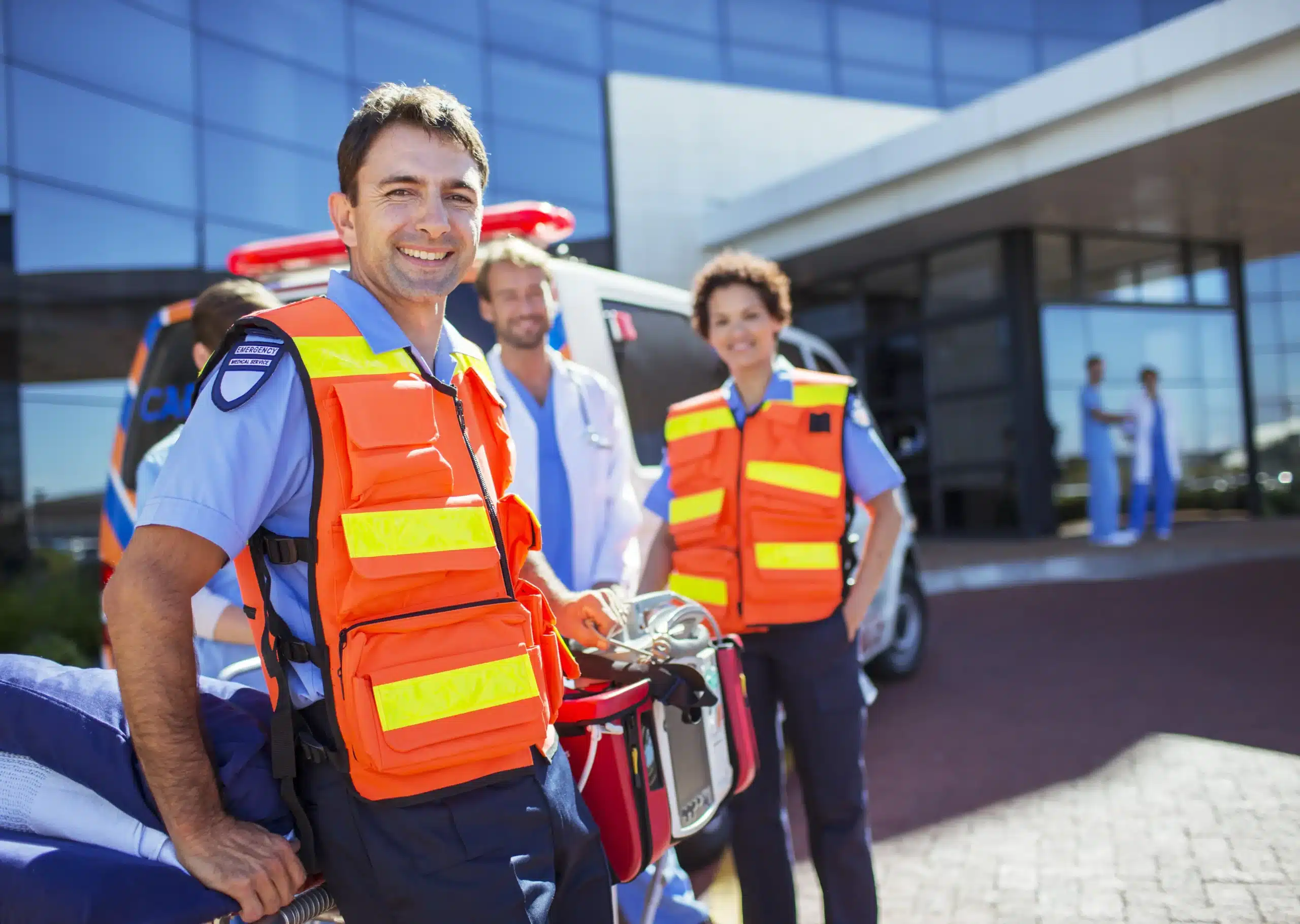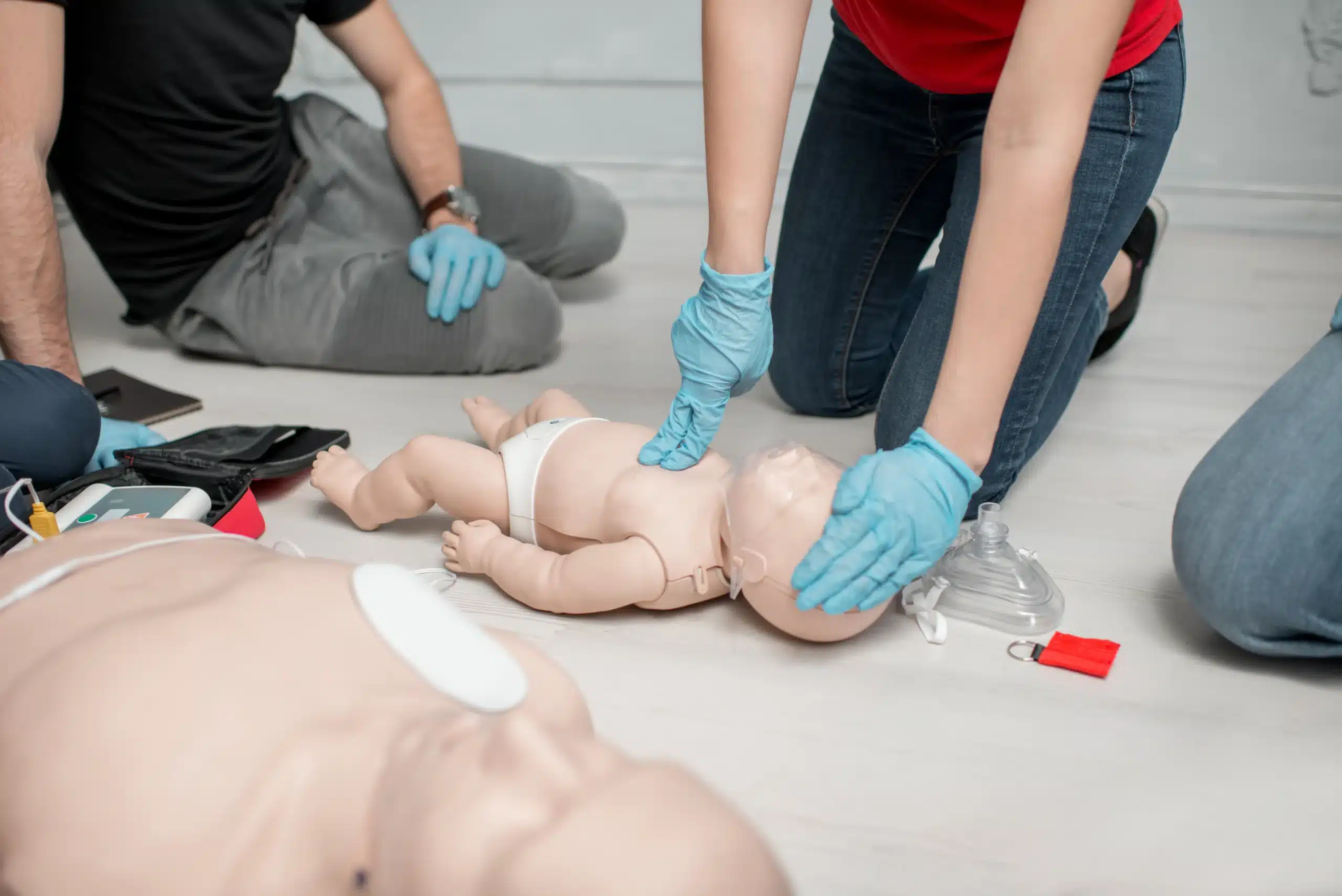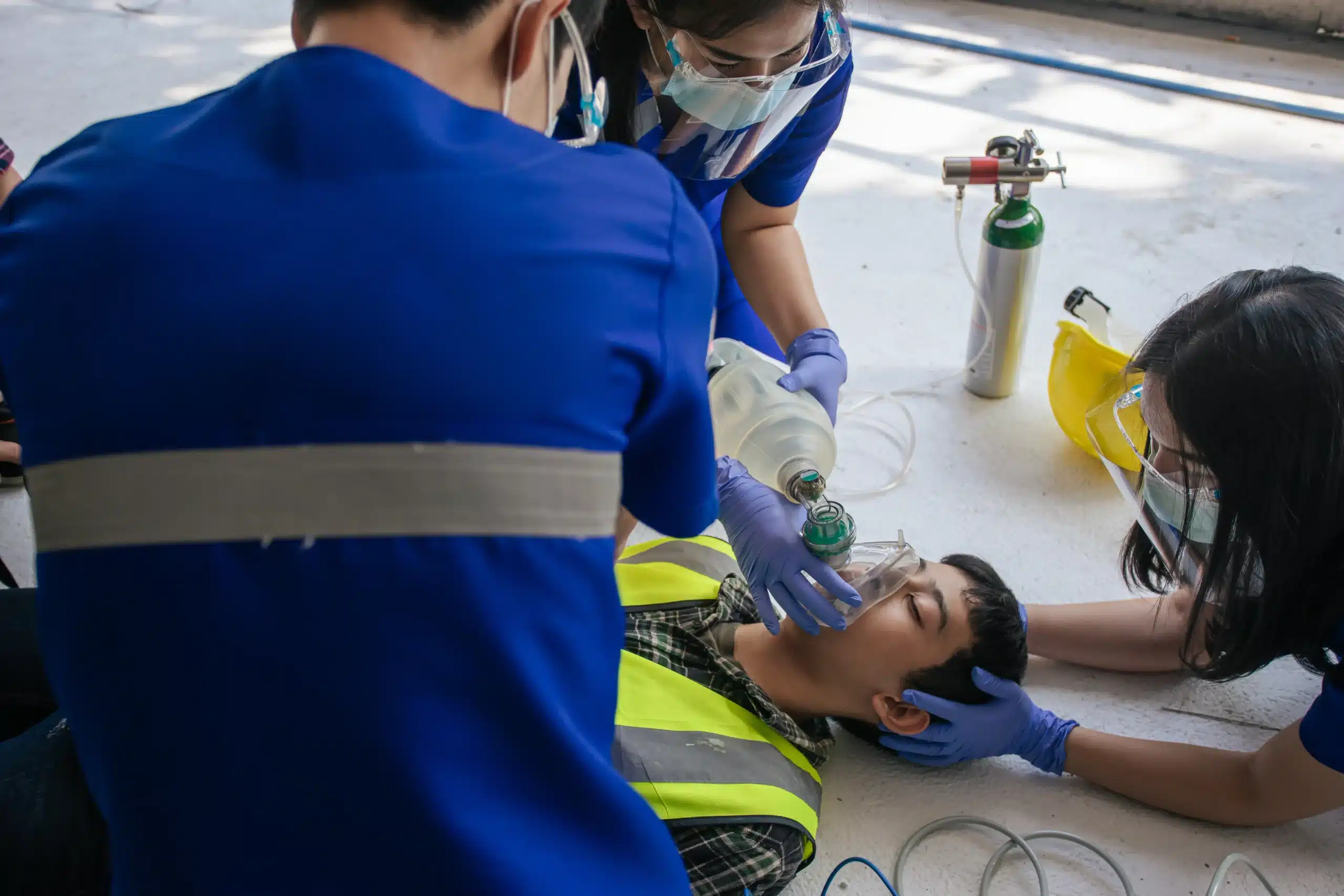Empowering yourself with life-saving skills is easier than you think, especially when it comes to CPR certification in Pittsburg. Whether you’re a concerned parent, a healthcare professional, or simply someone who wants to be prepared for emergencies, this guide breaks down everything you need to know about CPR certification—from choosing the right course to understanding its value in various professions. We’ll explore different CPR certification options, debunk common myths, and connect you with reputable training providers in Pittsburg, including Safety Training Seminars, known for their low-price guarantee and commitment to high-quality instruction. Get ready to become a more confident and prepared member of your community.
Key Takeaways
- CPR certification builds confidence and prepares you for emergencies. Whether you’re a healthcare professional, teacher, or simply want to be prepared, having up-to-date CPR training empowers you to respond effectively in critical situations.
- Select the right CPR course and provider based on your specific needs. Consider factors like the type of certification required (BLS, CPR/AED, etc.), course format (online or in-person), location, schedule, and cost. Research different providers and compare their offerings to find the best fit.
- Maintain your CPR skills through regular practice and renewal courses. CPR certifications are typically valid for two years. Keep your skills current to ensure you’re always ready to assist in an emergency. Take advantage of refresher materials and practice opportunities to reinforce your training.
What is CPR Certification & Why Does it Matter in Pittsburgh?
CPR certification gives you the skills to respond effectively during cardiac arrest emergencies. While you don’t need official certification to perform CPR, completing a CPR course ensures you’re properly trained to use this life-saving technique. Think of it as a bridge, keeping someone alive until professional help arrives. That’s why getting certified is so important—it empowers you to make a real difference when it matters most.
In Pittsburgh, cardiac arrest can happen anytime. Having trained individuals throughout our community increases the chances of survival. Whether you work in healthcare, education, or simply want to be prepared, CPR certification gives you the confidence to act quickly and effectively. CPR training isn’t just about the physical steps; it’s about developing the mental preparedness to handle intense situations.
Organizations like the American Red Cross offer CPR classes and certification in Pittsburgh. These courses, often led by experienced professionals, cover the latest techniques. With both online and in-person options available, finding a course that fits your schedule is easier than ever. Getting certified benefits you and strengthens our community’s ability to respond to emergencies. It’s a powerful way to make a positive impact.
CPR Certification Courses: What Are Your Options?
Choosing the right CPR certification course depends on your specific needs and career goals. Let’s break down some common options available in and around Antioch, Brentwood, and Pittsburg:
Basic Life Support (BLS)
The BLS certification course from the American Heart Association is the gold standard for healthcare providers and professionals in related fields. It covers essential life-saving techniques, including CPR for adults, children, and infants, along with how to use an AED and relief of choking. BLS certification emphasizes teamwork and high-performance resuscitation. If you’re pursuing a career in healthcare or a related field, BLS is likely the certification you need. Safety Training Seminars offers the lowest prices in Contra Costa County with our Low Price Guarantee.
CPR/AED for Adults, Children, and Infants
This course focuses on CPR and AED use for individuals of all ages. It’s a great option for those who need CPR training for their job, such as teachers, coaches, or childcare providers, or for anyone who wants to be prepared to help in an emergency. While it doesn’t cover all the advanced skills taught in a BLS course, it provides a solid foundation in essential life-saving techniques. Contact us about our group discounts if you’re signing up with friends or colleagues.
CPR & First Aid Combo Course
Combining CPR training with First Aid knowledge gives you a well-rounded skill set to handle various emergencies. This comprehensive course covers everything from treating minor injuries like cuts and burns to responding to more serious situations like choking or cardiac arrest. It’s an excellent choice for anyone who wants to be fully prepared for any emergency. This combined CPR and First Aid course provides comprehensive training for a variety of situations.
Heartsaver CPR/AED
The American Heart Association’s Heartsaver CPR/AED course is designed for anyone with little or no medical background who needs a CPR/AED certification. This course is ideal for community members, workplace requirements, or those who simply want to learn these life-saving skills. It’s a less intensive option than BLS, focusing on the core skills needed to respond to cardiac emergencies in adults, children, and infants. The Heartsaver CPR/AED course offers fundamental life-saving skills for anyone.
Top CPR Certification Providers in Pittsburgh
Finding the right CPR certification provider is key to receiving quality training. Here are a few reputable options in the Pittsburgh area:
Safety Training Seminars
While Safety Training Seminars’ primary location is in Antioch, CA, their commitment to cost-effective training and a low price guarantee might be worth considering if affordability is a priority. They specialize in American Heart Association courses, including BLS, ACLS, and PALS, and offer discounts for group classes. If you’re open to online learning or traveling for a class, exploring their website could be beneficial.
American Heart Association
The American Heart Association offers a range of CPR and first aid courses and is a trusted authority on CPR training. Visit their website to locate certified training centers in the Pittsburgh area.
American Red Cross
The American Red Cross is a well-respected provider of CPR certification, offering various courses such as CPR/AED and First Aid. Their classes are taught by experienced professionals, and certifications are valid for two years.
CPR Pittsburgh
CPR Pittsburgh provides American Red Cross-certified CPR and First Aid classes, focusing on convenient scheduling and offering same-day certification cards.
CPR Certification Pittsburgh PA
CPR Certification Pittsburgh PA is an American Heart Association Certified Training Site offering CPR and First Aid classes. They prioritize delivering high-quality training to prepare individuals for real-life emergencies.
How to Get CPR Certified
Getting CPR certified is straightforward. This section breaks down the process, helping you find the right course and training format.
Choose the Right Course
First, identify the right CPR certification course for your needs. If you’re in Antioch, Brentwood, or Pittsburg, Safety Training Seminars offers AHA-certified courses in BLS, ACLS, PALS, CPR, and First Aid. These certifications are widely recognized and accepted. Consider your specific professional requirements—healthcare providers often need BLS or ACLS, while others may only require basic CPR and AED training. Check with your employer or regulatory bodies to confirm what certification you need.
Class Duration & Format
CPR classes are designed to be efficient. Most basic CPR courses run for about three hours, fitting comfortably into most schedules. Safety Training Seminars offers classes in over 60 cities, making it easy to find a convenient time and location. They also provide group discounts, a great option for workplaces or groups of friends.
Hands-on Practice & Assessment
Effective CPR training emphasizes hands-on practice. Look for courses that include practice on mannequins and feedback from certified instructors. This practical experience builds confidence and reinforces the skills you learn. Safety Training Seminars uses up-to-date techniques and equipment, ensuring you receive high-quality training.
Online vs. In-Person Training
You can choose between online and in-person CPR training. Online courses offer flexibility, allowing you to learn at your own pace and from anywhere. However, in-person classes provide crucial hands-on practice and direct interaction with instructors. While some CPR training can be completed online, many organizations, including the AHA, require an in-person skills assessment for certification. Consider your learning style and the importance of hands-on experience when making your decision. If you prefer a blended approach, some providers offer a combination of online learning and in-person skills sessions.
Cost & Value of CPR Certification
Knowing the cost of CPR certification is a practical first step. This section breaks down typical price ranges, potential discounts, and how Safety Training Seminars offers affordable options for residents of Antioch, Brentwood, and Pittsburg.
Average Course Prices
CPR certification courses in Pittsburgh typically range from $50 to $90, depending on the course type and training provider. Basic CPR/AED courses tend to be on the lower end, while those including First Aid or geared towards healthcare professionals (like BLS) might be a bit more. For instance, CPR Certification Pittsburgh offers a CPR/AED course for $59.95 and a combined CPR/AED and First Aid course for $79.95. See their website for details. CPR Pittsburgh’s BLS CPR & AED class is $64.95, while their BLS CPR, AED & First Aid class is $84.95.
Group Discounts & Special Offers
If you need to certify a group, like coworkers or a community organization, ask about group discounts. Many providers offer lower rates for group training, making it more economical. Some, like CPR Certification Pittsburgh, offer convenient on-site training for larger groups. Also, look out for promotions. The Red Cross, for example, often has discounts on training materials, adding value to your CPR training.
Safety Training Seminars’ Low Price Guarantee
Safety Training Seminars believes cost shouldn’t prevent anyone from learning these essential skills. Our low price guarantee makes getting certified more accessible for individuals and organizations in Antioch, Brentwood, and Pittsburg. Visit our website for course information and pricing.
Maintain Your CPR Skills: Validity & Renewal
CPR is a lifesaving skill, but like any skill, it needs regular refreshing to stay sharp. Knowing how long your certification is valid and how to renew it is crucial for ensuring you’re always prepared for an emergency.
How Long is Certification Valid?
CPR certifications, such as those offered by the American Heart Association, are typically valid for two years. Keeping track of your expiration date is essential. Mark it on your calendar or set a reminder so you know when your skills need a refresh. A current certification demonstrates your commitment to providing high-quality CPR and gives you the confidence to act in critical situations. Our Antioch CPR classes provide you with an official certification card valid for two years upon successful completion.
Renew Your Certification
Don’t let your skills lapse! Renewal courses offer a streamlined way to update your knowledge and skills without retaking the entire course. These courses are often shorter and focus on key updates and changes in CPR guidelines. Check with your certifying organization for specific renewal options and requirements. At Safety Training Seminars, we offer various CPR renewal courses in Antioch, Brentwood, and Pittsburg to make staying current convenient and affordable. Check our website for upcoming schedules. You can also take advantage of our low price guarantee.
Practice & Refresher Courses
Even if your certification isn’t due for renewal, regular practice is key to maintaining muscle memory and confidence in your CPR abilities. The American Red Cross offers free online refresher materials to help you stay sharp between certifications. Consider reviewing these materials every few months. Additionally, practicing with friends, family, or colleagues can create a comfortable learning environment and reinforce proper techniques. Consistent practice, combined with timely renewals, ensures you’re always ready to respond effectively in an emergency. For larger groups, we offer discounts for group classes.
Benefits of CPR Certification: Career & Personal
Getting CPR certified isn’t just about checking a box; it’s about equipping yourself with a life-saving skill that offers numerous personal and professional advantages. Whether you’re pursuing a career in healthcare, looking to enhance your resume, or simply want to be prepared for emergencies, CPR certification provides valuable benefits.
Healthcare & Education Professions
CPR certification is often a prerequisite for jobs in healthcare and education. For aspiring medical professionals, nurses, and healthcare providers, possessing this skill demonstrates a commitment to patient safety and preparedness for emergency situations. Teachers, coaches, childcare providers, and camp counselors are regularly entrusted with the well-being of others and can respond effectively to unexpected incidents with CPR training. It allows you to act confidently and effectively in emergencies, a crucial asset in these professions. This training prepares you to respond to emergencies involving family, friends, coworkers, or even strangers.
Industries That Value CPR Skills
Beyond healthcare and education, many other industries recognize the value of CPR-trained employees. From construction and manufacturing to hospitality and fitness, workplaces where accidents or medical emergencies can occur prioritize individuals with these skills. Having CPR-certified staff enhances workplace safety and fosters a culture of preparedness and responsibility. Even if not explicitly required, CPR certification can strengthen your resume, showcasing your proactive approach to safety and willingness to take initiative.
Community Impact & Personal Confidence
Perhaps the most significant benefit of CPR certification is the positive impact it can have on your community. Knowing you possess the skills to potentially save a life brings a sense of empowerment and confidence. It allows you to step up in critical situations, offering immediate assistance before professional help arrives, which can make a profound difference in the outcome of emergencies, especially in cases of sudden cardiac arrest. Furthermore, understanding CPR helps dispel common misconceptions about the practice and encourages others to seek training and contribute to a more prepared and responsive community. Coupled with AED training, your ability to respond effectively in emergencies is amplified, providing you with the tools to make a real difference. This combination of CPR and AED knowledge strengthens your potential to save lives.
CPR Certification: Debunking Common Myths
It’s easy to get confused about CPR, especially with so much information (and misinformation) circulating. Let’s clear up some common misconceptions about CPR certification, so you can feel confident learning this life-saving skill.
Who Can Perform CPR?
One of the biggest myths is that you need to be a medical professional to perform CPR. This simply isn’t true. Anyone can learn CPR—from parents and teachers to office workers and gym-goers. While you don’t need mandatory certification to perform CPR in an emergency, taking a course ensures you’re properly trained and can act effectively under pressure. Think of it like knowing how to change a tire—it’s a valuable skill for anyone to have. At Safety Training Seminars, we offer a variety of CPR courses suitable for all skill levels.
How Effective is CPR?
Another misconception is that CPR always revives someone experiencing cardiac arrest. Sadly, this isn’t the case. CPR helps maintain blood flow to the brain and other vital organs, buying precious time until professional medical help arrives. CPR increases the chances of survival, but it’s not a guaranteed fix. It’s crucial to remember that doing something is always better than doing nothing. Even if CPR doesn’t restart the heart, it can significantly improve the outcome. Understanding this realistic view of CPR’s effectiveness is essential. For more information on CPR facts and myths, check out this article.
Learning Requirements & Expectations
Some people believe learning CPR requires extensive medical training. This is also false. CPR consists of chest compressions and rescue breaths—techniques that can be taught to anyone regardless of medical background. In a hands-on class, you’ll practice on a CPR training mannequin, learning the correct hand placement, depth of compressions, and rhythm. Our instructors at Safety Training Seminars guide you through each step, ensuring you feel comfortable and prepared. We offer classes throughout the week to fit your schedule.
Prepare for Your CPR Certification Course
Getting ready for your CPR certification course can make a real difference in how well you absorb the information and build your confidence. Knowing what to expect and preparing beforehand sets you up for a positive learning experience.
What to Expect During Training
CPR certification courses blend theory and hands-on practice. Expect a combination of lectures, demonstrations, and interactive exercises. Instructors typically review the latest CPR guidelines and techniques from organizations like the American Heart Association. You’ll learn how to recognize the signs of a cardiac arrest, how to perform chest compressions, give rescue breaths, and use an AED (automated external defibrillator). Classes are designed to be engaging and informative, with plenty of opportunities to ask questions and practice your skills. At Safety Training Seminars, our instructors create a supportive learning environment where you can feel comfortable asking questions and practicing until you feel confident. We offer courses in over 60 cities, including daily classes right here in Antioch.
Tips for Successful Certification
A little preparation goes a long way! Before your class, familiarize yourself with the course materials. Many providers offer resources you can review beforehand. This will give you a head start and allow you to focus on mastering the practical skills during the training session. Active participation is key. Ask questions, engage in discussions, and take advantage of every opportunity to practice. The more you practice, the more confident you’ll become. After your course, use any refresher materials provided to keep your skills sharp. Regular review helps you retain the information and maintain your readiness to respond in an emergency. Check out our discount group classes for a fun and affordable way to learn with friends or colleagues.
Additional CPR Learning Resources
There are many excellent resources available to supplement your CPR training. The American Heart Association website offers valuable information on CPR guidelines, techniques, and the latest research. You can also find helpful videos and tutorials online that demonstrate proper CPR procedures. Remember, staying up-to-date on the latest recommendations is crucial for providing effective CPR in a real-life situation. For those looking for the most affordable options in Contra Costa County, Safety Training Seminars offers a low price guarantee. We’re committed to making high-quality CPR training accessible to everyone in our community, including Antioch, Brentwood, and Pittsburg.
Choose the Right CPR Certification Provider in Pittsburgh
Finding the right CPR certification provider is crucial for a high-quality learning experience. With several options in Pittsburgh, consider key factors before making your decision. This section will guide you through selecting the best provider for your needs.
Factors to Consider
First, confirm the provider offers accredited and recognized certification. Look for organizations like the American Heart Association (AHA) or the American Red Cross, as their certifications are widely accepted. Ensure the certification meets requirements for your job. Location and scheduling flexibility are also important. Choose a provider with convenient class times and locations. Safety Training Seminars offers courses in Antioch, Brentwood, and Pittsburg. Finally, consider the cost, including study materials or fees. Safety Training Seminars offers a low price guarantee in Contra Costa County.
Compare Courses & Schedules
Different providers offer various CPR courses tailored to specific needs. Some focus solely on CPR techniques, while others include First Aid training. Compare course content and choose one that aligns with your goals. If you’re a healthcare professional, you might need a more comprehensive course like the American Heart Association ACLS or PALS. Check the class schedules and formats. Some providers offer weekend or evening classes, while others may have online options. Consider your availability and preferred learning style. Safety Training Seminars offers daily classes in over 60 cities, providing flexibility.
Instructor Qualifications & Experience
The instructor’s expertise is key to your learning experience. Inquire about instructors’ qualifications, certifications, and experience. Look for providers with instructors who have extensive experience and are passionate about teaching. A knowledgeable and engaging instructor improves your understanding and retention. Positive reviews and testimonials offer insights into the quality of instruction. A provider’s commitment to excellent customer service contributes to a positive learning environment. Safety Training Seminars prioritizes student success and provides support throughout the certification process.
Frequently Asked Questions
Do I need CPR certification to help someone in an emergency? No, you are not legally required to have CPR certification to perform CPR. Good Samaritan laws protect those who offer assistance in good faith. However, having proper training gives you the confidence and skills to act effectively under pressure. It also ensures you’re up-to-date on the latest techniques.
What’s the difference between BLS and a general CPR/AED course? BLS (Basic Life Support) certification is designed for healthcare providers and professionals in related fields. It’s more comprehensive than a general CPR/AED course, covering advanced techniques like two-rescuer CPR and bag-mask ventilation. A general CPR/AED course focuses on essential skills for responding to cardiac emergencies in adults, children, and infants. Consider your career goals and whether your workplace requires a specific certification level.
How long does it take to get CPR certified? Most basic CPR/AED courses take around 4-6 hours to complete, including both classroom instruction and hands-on practice. BLS courses may require a bit more time due to the more advanced content. Check with specific training providers for their course durations.
How much does CPR certification cost? The cost of CPR certification varies depending on the course type, location, and training provider. Basic CPR courses typically range from $50 to $100. More specialized courses like BLS or those that include First Aid certification may be slightly higher. Look for providers who offer group discounts or special promotions. Safety Training Seminars offers a low price guarantee for their courses in Antioch, Brentwood, and Pittsburg.
How often do I need to renew my CPR certification? Most CPR certifications are valid for two years. It’s important to renew your certification before it expires to maintain your skills and ensure you’re up-to-date on any changes in CPR guidelines. Many providers offer renewal courses that are shorter than the initial certification course.


